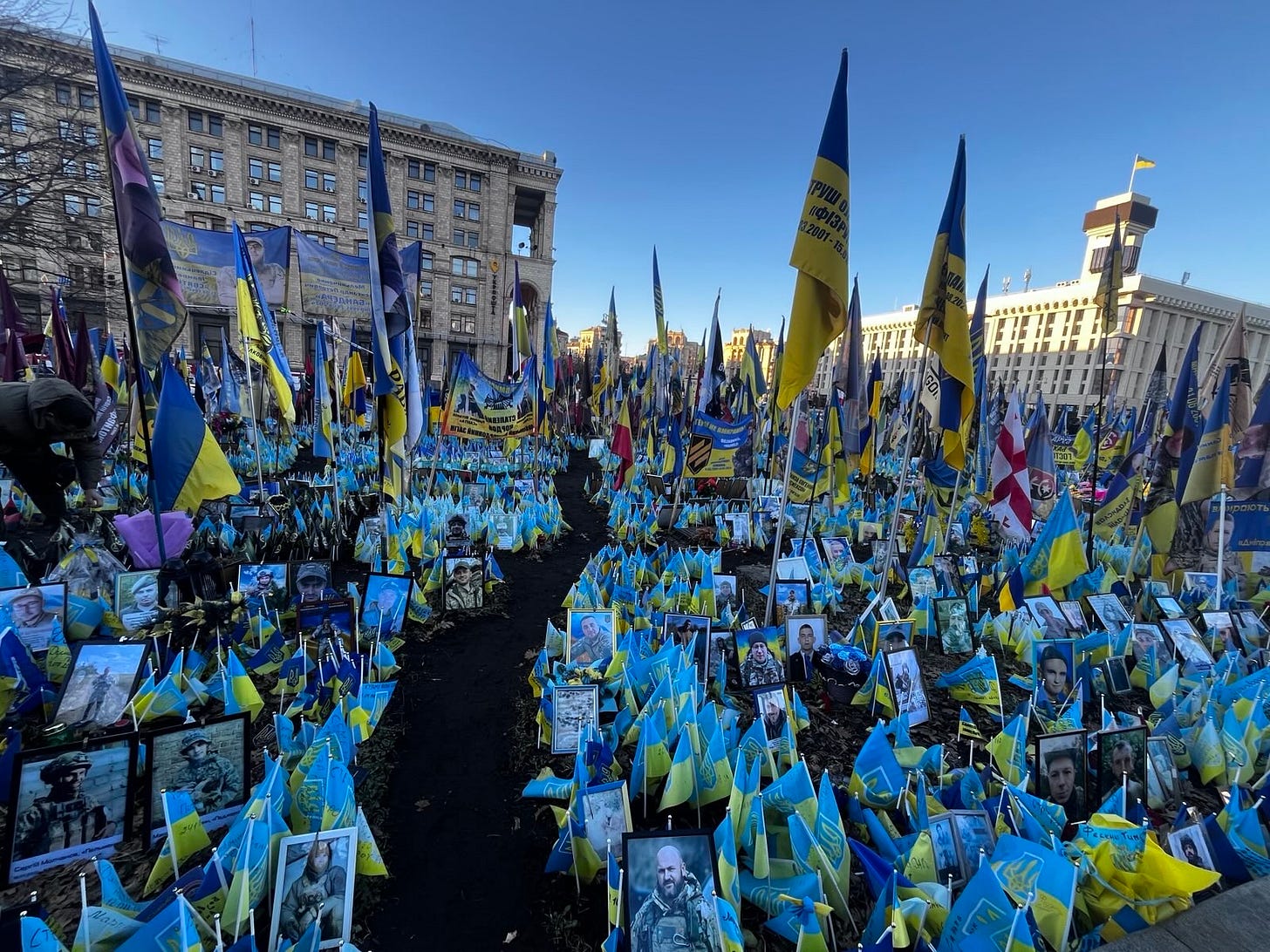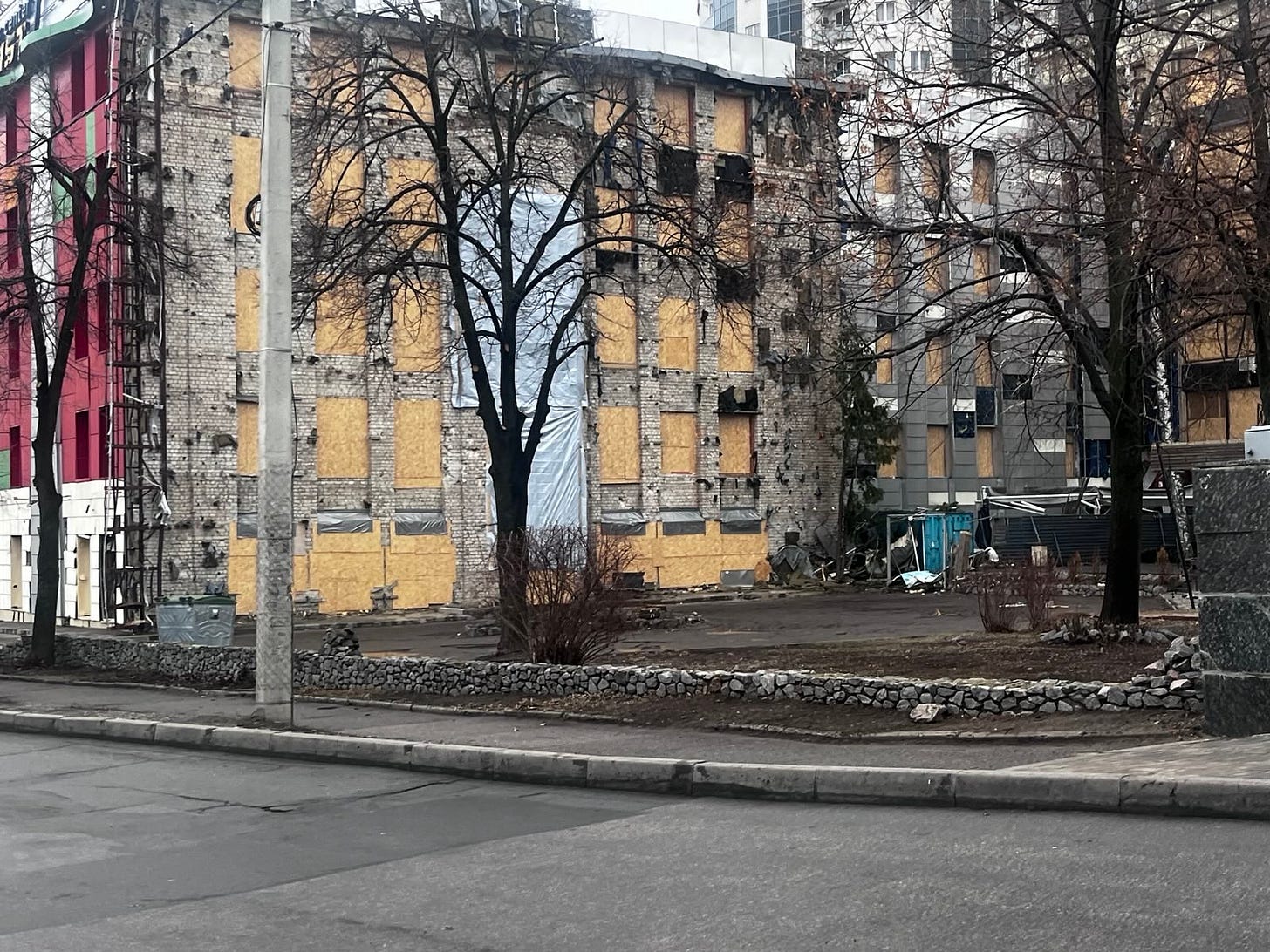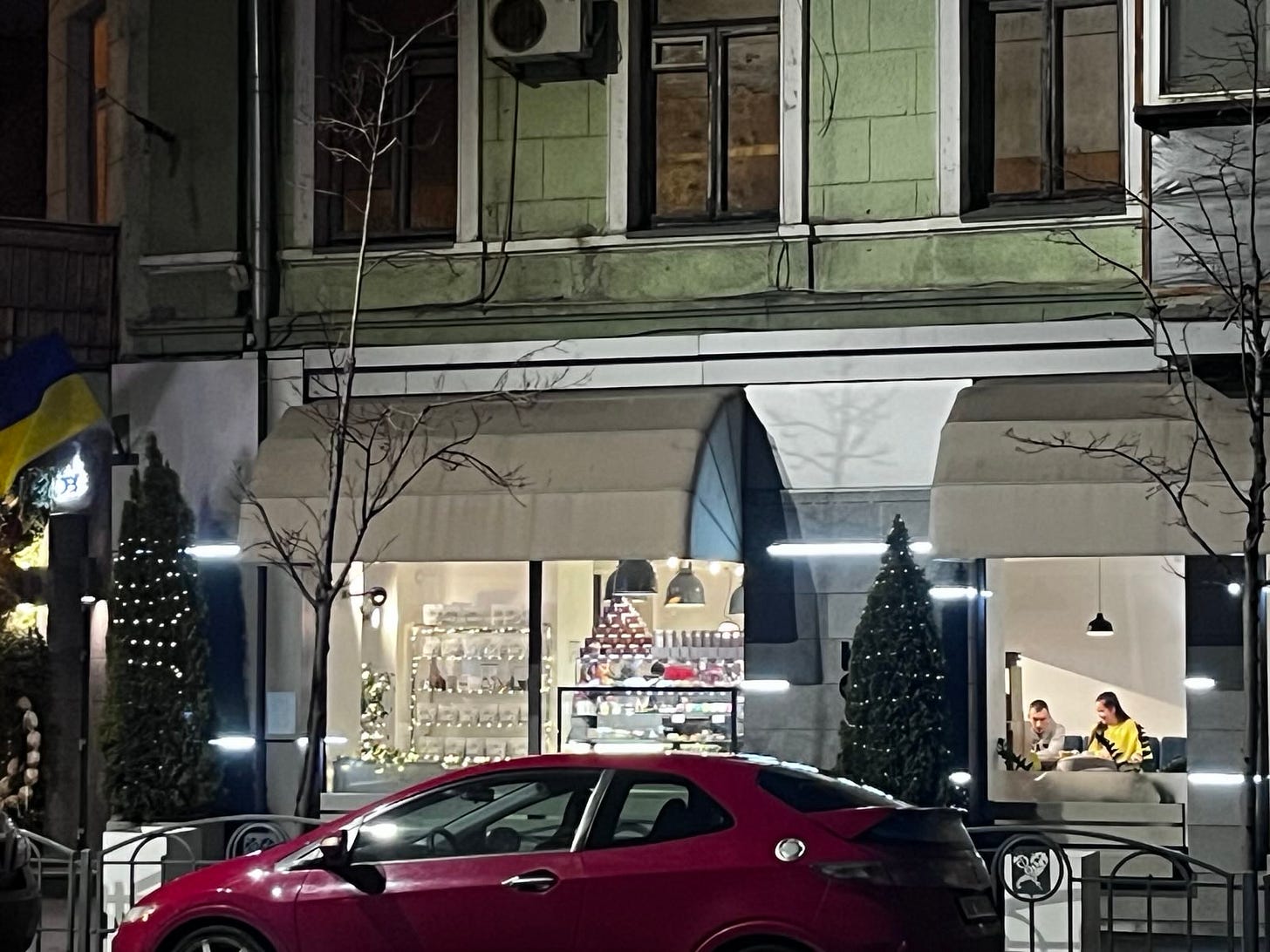Increasingly, I find it pointless to contribute to the policy debate around Ukraine in the UK. It’s not that there aren’t excellent roadmaps, policy papers, or analyses—there are. But none of it matters when there is no political will to engage with the reality of Russia’s war, let alone its consequences. The government won’t take the necessary steps, and I have no idea how to make them. Many colleagues here and in other European countries feel the same. We are not fighting a lack of knowledge; we are fighting against the normalisation of Russia’s war on Ukraine.
In February 2022, Russia’s full-scale invasion was seen as an existential crisis for Europe and a defining moment for the international order. But in January 2025, it is increasingly treated as routine—a tragic but unremarkable conflict playing out on the continent’s periphery. Ukraine’s supporters push back against this normalisation, arguing for continued military, economic, and political support, warning that complacency will have devastating consequences. They are right to do so.
Pathways carved through the Kyiv memorial to Ukrainian soldiers who died fighting Russia. It is a spontaneous, and supposedly temporary, memorial, that is now an established site to pay one’s respects. January 2025.
But I wonder if, in fighting against this normalisation, we are missing something more fundamental—myself included. Because normalisation is happening against the backdrop of something even more destabilising: the abnormalisation of our own political, economic, and institutional systems. It is obvious in the U.S., where political dysfunction, institutional decay, and the collapse of shared reality have been playing out in plain sight. But in Europe, too many of us—especially those who want to see liberal democracy endure—refuse to accept that we are on a similar trajectory.
This makes the fight against normalisation far more difficult because when something becomes normal in a period of abnormality, the solution cannot simply be to "return to normal." The institutions, structures, and political will that once upheld that normal no longer function as they did. Fighting the normalisation of Ukraine’s war while ignoring the deeper process of Western abnormalisation is like trying to restore a building while its foundations are crumbling. If institutions continue to weaken, political will fractures, and public trust erodes further, Ukraine’s war—and its outcome—will not just be ignored but will cease to be something we are even capable of addressing.
Fighting against the normalisation of Ukraine’s war while failing to recognise our own abnormalisation is a losing battle. If our institutions continue to weaken, if our political will fractures, if we become indifferent to the erosion of democratic norms, then our ability to support Ukraine will inevitably decline. Already, in the UK, it feels as though Ukraine’s war—and its outcome—is becoming irrelevant to more and more people, swallowed up by our own dysfunction.
What is Normalisation?
Normalisation, in a sociopolitical context, is the process by which ideas, behaviours, policies, or political conditions become widely accepted as standard, unremarkable, or legitimate. It happens in different ways.
Political normalisation occurs when a regime, ideology, or policy once considered extreme or abnormal becomes widely accepted. In Russia, the destruction of political opposition and the entrenchment of a permanent wartime economy have made the war an indefinite state of affairs—no longer perceived as an extraordinary crisis. In the West, Ukraine’s resistance is increasingly framed as just another long-running conflict rather than an urgent crisis demanding intervention.
Diplomatic normalisation is visible in the quiet resumption of formal relations with Russia. Putin’s visit to Mongolia—despite Mongolia being a signatory to the ICC—demonstrates this, as does the open support of Hungary and Slovakia’s leaders for the Kremlin. Many European countries continue economic and political ties with Russia, to say nothing of nations beyond Europe. Ukraine’s economy, too, has normalised war, adapting to bombardment and instability. Meanwhile, Western sanctions against Russia have transitioned from emergency measures designed to force withdrawal into a permanent fixture, with little urgency to close the many loopholes that allow them to be circumvented.
Social and cultural normalisation happens when societies adapt to new realities, no matter how extreme. In Russia, mass mobilisation and conscription are now framed as both patriotic duty and a shrewd financial choice. In Ukraine, war-related trauma has been absorbed into daily life. The absurdity of adaptation is something I notice constantly. When foreigners in Kharkiv ask if I’m going to an air raid shelter because a siren is going off, I laugh. A year ago, that reaction would have horrified me.
Central Kharkiv. January 2025.
Media and discursive normalisation shape public perceptions. The West’s declining coverage of Ukraine—especially of frontline developments and the situation in occupied territories—has helped create the illusion that the war has "stabilised." The reality is far from that. The most frustrating moment of any trip back from Ukraine is always the taxi ride home. The driver inevitably asks, “That war is still happening? But surely there aren’t bombs?” They stare blankly when I describe firsthand missile and drone attacks on a city of one million people.
And of course historical normalisation is well underway. The Kremlin constantly finds new ways - and new textbooks - to rewrite history to frame its invasion as a continuation of the Soviet Union’s fight against Nazis. In occupied Ukrainian territories, Russian imperialism is presented as the rightful historical norm. In the West, it is also common even among educated people to hear historical absurdities like ‘Well, Kyiv was the first capital of Russia’ or ‘Crimea has always been Russian’.
The way war is normalised—or resisted—has profound implications for policy, public perception, and long-term support. Ukraine’s supporters are right to push back against it. But the deeper issue is that this normalisation is tolerated because the institutions that once upheld a different world order are widely seen as discredited—rightly or wrongly.
Abnormalisation: When the World Unravels
While much of the focus is on the normalisation of war, the West is also grappling with something even more dangerous: abnormalisation. This is the opposite of normalisation—the process by which political, economic, and social conditions become unmoored from accepted norms, leading to systemic dysfunction, the erosion of accountability, and the breakdown of democratic structures. It is not just instability. It is a fundamental loss of order, where institutions fail, and no single actor can reverse the decline.
Normal life amid boarded up and bombed out houses. Kharkiv. January 2025.
In many Western countries, institutional decay is no longer hypothetical. Many government institutions function in part or deeply ineffectively — the civil service, the prison systems, the policy, the health systems, the ministries for foreign affairs are either overwhelmed, captured, or irrelevant. Policy responses are erratic or nonexistent, not because of a lack of expertise (although that plays its role too) but because these institutions rarely have the power or legitimacy to implement any informed policies anyway.
No one takes responsibility for crises. Everyone laments the state of the world, but failure is always someone else’s fault—blamed on “the system,” external actors, or historical inevitability. This creates bureaucratic inertia: procedures are followed, but nothing is addressed. Over time, a culture of learned helplessness takes hold. Consequently, democracy still exists, but it is hollowed out. Liberal democracy was once a balance between majority rule and institutional constraints that protected individual rights, the rule of law, and pluralism. That balance is eroding and will only erode further with the rise of illiberal leaders and parties determined to dismantle institutions from within – especially when those institutions have no will or even mechanism to reject illiberal saboteurs – I am thinking specifically of the EU and Orban’s Hungary now.
The rise of illiberalism also talks to a much more difficult philosophical problem: in many democratic countries, people are uncomfortable with the post-millennium form liberalism has taken. We can decry that if we wish but it won’t convince anyone, any more than the Democrats convinced Trump voters or ardent Remainers convinced Brexiteers. Telling people they are wrong or bad rarely changes their mind. Moreover, the erosion of shared reality accelerates abnormalisation. Competing media narratives, digital platforms, and state propaganda have created irreconcilable versions of truth. In many cases, revisionism has gone from being an intellectual debate to an active policy tool. Our societies oscillate between frenetic outrage and complete disengagement.
Where Does This Lead?
Thankfully, we are not yet in total abnormalisation, but I cannot shake the sense that is where we are headed: either (most likely) to permanent dysfunction in which the system limps along indefinitely, failing in slow motion, much like the late USSR. Or, less likely, to crisis and collapse where a shock event like war, financial crash, or mass unrest triggers a sudden breakdown (like Tsarist Russia).
There are enough key warning signs to be worried: policy paralysis, the absence of accountability, institutional decay, erosion of shared reality. I know people find this bleak. I find it bleak. But ignoring reality does not make it go away. How can we resist the normalisation of the abnormal (Russia’s war on Ukraine) when we are already in a period of abnormalisation?
The obvious answer is that we desperately need new political actors to emerge—ones with legitimacy outside the broken system. The narrative of inevitability must be shattered—people need to believe change is possible. Institutions must be rebuilt or replaced. If the system fails, we have to look outside the system. Unfortunately, I cannot see many appealing political figures outside the system yet.
In the meantime, the "old normal" continues limping along.
Fundraiser:
The USAID stop-work order has had a terrible impact on Ukrainian media, which has been left without funding in the cases of local and specialised media. I support Eastern Variant and Bihus with regular donations and therefore feel comfortable recommending them to anyone else who would like, and is in a position, to support these excellent media outlets. Eastern Variant are focussed on Donetsk and Luhansk regions and provide much more than just media, also offering hotlines to people on the occupied territories of Ukraine. Bihus, meanwhile, do an excellent job of calling out and holding accountable corrupt officials, with excellent and time-consuming investigations.




